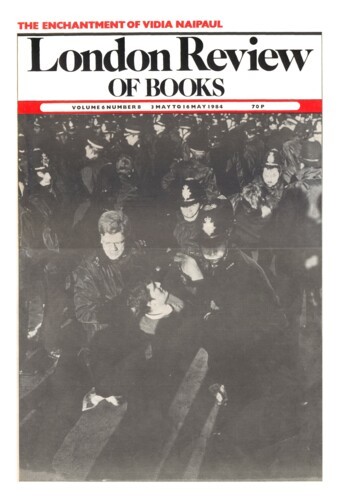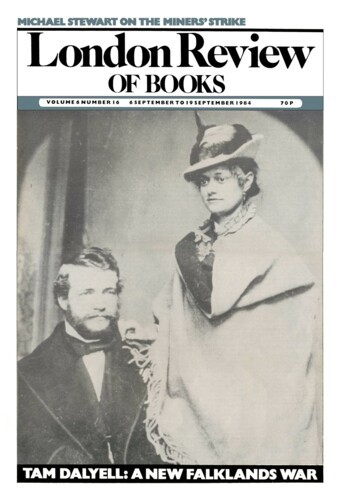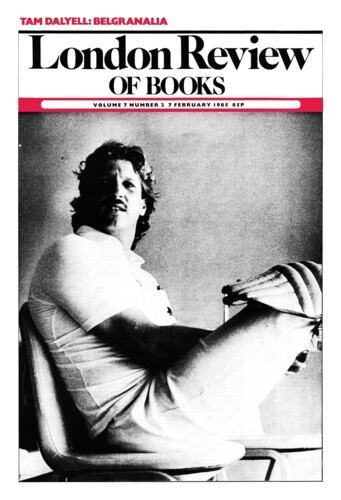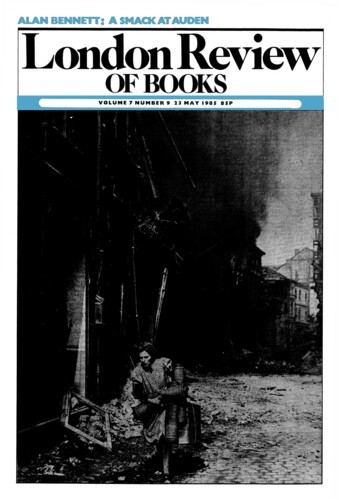Operation Big Ear
Tam Dalyell, 3 May 1984
This is the advice I shall give to those of my Parliamentary friends who have an interest in the American military presence in Britain, but who may have neither the time nor the inclination to read a 340-page book. ‘Go to the Oriel Room in the Commons Library, and having got the Unsinkable Aircraft-Carrier, turn to pages 76 and 77. There you will find a map of all the American bases and installations in Britain. You and I are meant to be public representatives in this land, but I’ll bet you had no more notion than I had of the sheer scale of the United States presence.’ I doubt whether Government sources will be able to deny much that Campbell says, since as Field Marshal Lord Carver has put it, ‘Campbell does not rely on emotion or distortion.’ I have reservations about only one point of fact. At the beginning of his book, he says:





